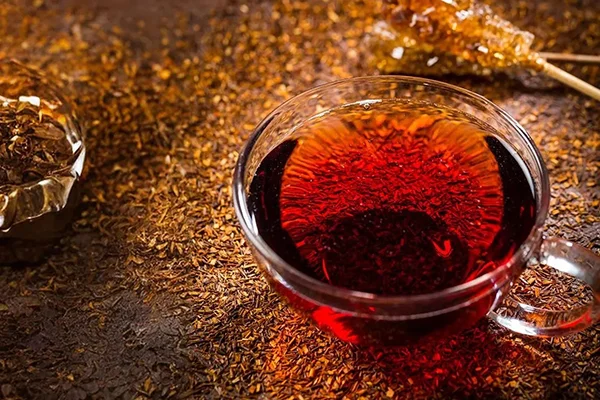Tea Benefits: Explore the Different Types of Tea and Their Effects
Tea is one of the world’s most beloved beverages, and it’s more than just a warm drink — it’s packed with health advantages. In this article, we’ll explore tea benefits, how different types of tea can support your body, and why tea is a great addition to your daily routine.
There are many types of tea, each with its own taste, preparation method, and health benefits. From antioxidant-rich green tea to bold black tea, delicate white tea, herbal infusions, and caffeine-free red rooibos, the variety is immense. Every cup offers a distinct experience tailored to different health goals and personal preferences.
In this article, we’ll explore the most popular types of tea and their benefits. Whether you’re sipping tea for its flavor, its medicinal properties, or as part of a daily ritual, this guide will help you understand what each type can offer and how to choose the right one for you.
We’ll also provide important notes on when tea can be harmful, how to get the most out of your tea-drinking experience, and practical advice for selecting high-quality tea. If you’re a tea lover or simply curious about this ancient drink, read on to discover why tea is truly a gift of nature.
Exploring the World of Tea
There are many types of tea, and each one comes with its own unique health properties, flavor profile, and traditional uses. From ancient Chinese medicine to modern wellness trends, tea continues to be celebrated for its ability to support physical and mental well-being. Below are some of the most popular types of tea and their benefits.
There are many types of tea around the world, each with its own unique flavor and set of health benefits. From energizing blends to calming herbal infusions, tea has long been used not just as a beverage, but as a tool for improving well-being. Let’s explore some of the most popular types of tea and their benefits.
- Green tea is one of the most widely consumed teas globally, known for its fresh taste and high antioxidant content. Since the leaves are minimally processed, green tea retains powerful compounds such as catechins. Drinking green tea regularly may help improve brain function, support fat burning and weight loss, and reduce the risk of heart disease and certain types of cancer.

- Black tea, on the other hand, is fully oxidized, giving it a bold flavor and dark color. It contains beneficial compounds like theaflavins and thearubigins, which offer anti-inflammatory and antioxidant effects. Black tea can help boost alertness, support heart health, and may help regulate blood pressure and blood sugar levels.
- White tea is the least processed of all tea types and is made from young leaves and buds. This gives it a subtle flavor and a high concentration of antioxidants. White tea has been linked to anti-aging benefits, immune system support, and improved skin health. It’s also known to help reduce inflammation and protect against chronic diseases.
- Herbal tea isn’t made from tea leaves but from a mix of herbs, flowers, spices, or fruits. It comes in many varieties, each offering different benefits. Chamomile tea is commonly used to promote relaxation and better sleep. Peppermint tea is known for soothing digestive issues and reducing headaches. Ginger tea is often used to relieve nausea and support the immune system. These teas are typically caffeine-free and can be enjoyed at any time of day.

- Oolong tea falls between green and black tea in terms of oxidation. It combines the best of both worlds with a smooth, rich flavor. Oolong tea is great for improving digestion, especially after heavy meals. It may also help reduce cholesterol levels and support bone and dental health due to its calcium and magnesium content.
- Rooibos tea, also known as red tea, comes from South Africa and is naturally caffeine-free. Its sweet, earthy taste and rich antioxidant profile make it a popular choice for evening tea. Rooibos has been linked to stress reduction, improved skin health, and better sleep quality. It’s also safe for children and people sensitive to caffeine.

- Iced tea is not a different type of tea but a refreshing way to enjoy your favorite brews, especially during summer. It’s often made from green or black tea and served chilled, sometimes with added lemon, mint, or fruit flavors. Iced tea is a healthier alternative to sugary sodas, offering hydration and antioxidant benefits without unnecessary calories.
Each type of tea brings something different to the table. Whether you’re looking to improve focus, boost energy, relax, or support digestion, there is a tea that can help.
Conclusion: What’s Your Perfect Cup?
Tea is more than just a beverage; it’s a simple and powerful way to support your health. The wide range of available teas—from traditional green and black teas to herbal infusions like chamomile and rooibos—means you can find a blend that suits your taste and wellness goals.
The key to enjoying tea healthily is moderation. While teas like green and black contain caffeine, overconsumption can lead to side effects such as insomnia, increased heart rate, or reduced iron absorption. Experts generally recommend drinking two to four cups a day depending on the type of tea and your body’s reaction.
To get the most benefit from your tea, choose high-quality, organic teas whenever possible. Look at the ingredient list, especially for herbal teas, to make sure there are no added artificial flavors or sweeteners. Try to experiment with different types—green tea for focus in the morning, oolong or black after meals, and herbal teas like chamomile or peppermint before bed.
Also, remember that tea alone is not a cure. It works best as part of a balanced lifestyle that includes healthy eating, regular exercise, and good sleep. When used wisely, tea can be an enjoyable daily habit that contributes to physical, mental, and emotional wellness.
In conclusion, understanding the types of tea and their benefits allows you to make informed choices that support your specific needs—whether you want more energy, less stress, or simply a calming routine. Tea is a timeless and versatile drink that has earned its place as a global favorite for good reason. So go ahead, brew your next cup, and take a moment for your health.
🔗 External Link:
Healthline: Top 10 Evidence-Based Health Benefits of Tea
🔗 Internal Link:
Soda Drinks: Health Effects and Better Alternatives






